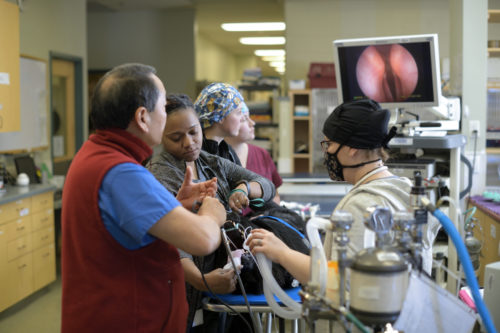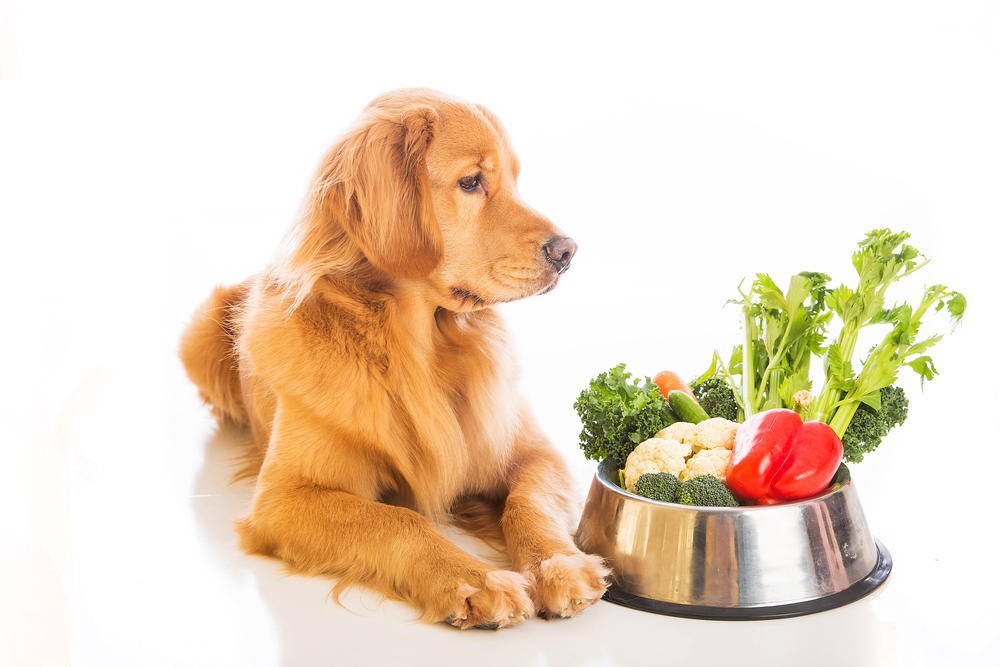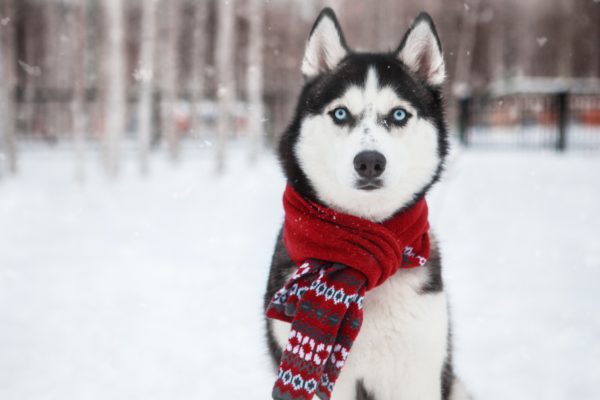There is a lot of talk about what our pets should and shouldn’t eat—especially online. For pet owners, this can be quite frustrating. The newest talk in the Internet-world is vegetarian and vegan diets for dogs and cats. Like many pet owners, you may be wondering if these types of diets are suitable for pets. We want to give you the accurate information you need to make an informed decision.
Vegetarian and Vegan Diets for Dogs
Many people are switching over to vegetarian diets. As they transition, they often consider a vegetarian diet for their pets. For dogs, vegetarian diets can work, but pet owners should consult with a veterinarian and their advice strictly throughout the process.
There are many nutrients that our pets (and humans) get from animal sources that are hard, if not impossible, to get from other sources without supplements. When determining whether or not dogs can eat a vegetarian or vegan diet, the main factor is whether or not pet owners are going to be able to come up with meals that include the right amount of protein and other important nutrients they need.
Vegetarian diets are fairly feasible for dogs, because they are natural omnivores (contrary to popular belief that dogs are carnivores) and need less protein in their diets than some other companion animals, such as cats. Most vegetarian diets include eggs, which are a great source of protein and contain a lot of amino acids that dogs need to stay healthy.
Vegan diets are a little trickier. Protein is vital for dogs and it is essential that dogs receive protein in some form. With the right balance of plant-based proteins, your dog can get everything that it needs, but this type of diet is best determined with the help of a professional. To supplement the lack of meat, the right balance of beans, corn, soy, and/or whole grains will be necessary. Many dogs, however, will miss having meat in their diet and may refuse food that doesn’t contain the tasty meat that they are used to eating. If your dog is refusing to eat a vegetarian or vegan diet, you may need to revert back to a traditional diet. A dog that refuses food for too long can experience resulting health issues.
Vegetarian and Vegan Diets for Cats
For cats, vegetarian and vegan diets are inappropriate and unfeasible for a variety of reasons. First, cats need vitamin D3, and they can’t produce it in their skin like people can. Unlike vitamin D2, vitamin D3 can only be found in animal-based sources. While dogs and people can use vitamin D2, cats really rely on D3.
Taurine is another nutrient that cats can’t make on their own. Taurine is an essential amino acid that is mostly found in muscle meat and organs, such as hearts, livers, kidneys, and seafood. Without meat in their diet, cats could develop an imbalance of taurine and other amino acids and essential fatty acids like L-carnitine and arachidonic acids. Over time, this imbalance could lead to a severe deficiency.
Vegetarian and vegan diets are also unlikely to get cats the recommended amount of protein that they need per day. It is recommended that cats get at least 25 grams of protein per 1,000 calories consumed.
Over time, without meat in their diets, cats can develop serious medical conditions, some of which can’t be reversed. The most common of these conditions is taurine-related dilated cardiomyopathy, which is an enlarged heart with weak contractions and poor pumping ability. Taurine deficiency can also cause eye problems, growth problems, and reproductive failures. In some cases, the condition can be life-threatening.
Changing Your Pet’s Diet
Before you ever change your pet’s diet, you should always consult with a veterinarian. While there are instances where a veterinarian will recommend removing meat from your pet’s diet, it is important that it is done in a safe, healthy manner. Often meat-less diets are recommended only for pets that have food allergies, liver disease, or frequent bladder stones.
It is important to also remember that all pets may have unique dietary needs. For this reason, not all pets can be placed on certain diets, and some pets will do well on diets that might be very harmful to other pets.
To convert your pet to a diet with little or no animal products, you will need to work closely with a veterinarian or veterinary nutritionist. A professional will be able to craft a diet that is appropriate for your pet. If you have any more questions about vegetarian and vegan diets for dogs and cats, give VRC a call today at 610-647-2950. We would be happy to get you in contact with a veterinary nutritionist that can help you come up with an appropriate diet for your pet’s unique needs.







 Email
Email




